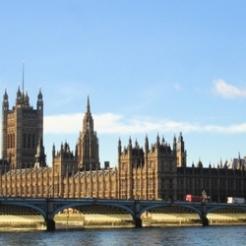"Background" staff costs should be exempted from the scope of the lobbying bill, the House of Lords decided in a vote yesterday.
The Transparency of Lobbying, Non-Party Campaigning and Trade Union Administration Bill limits political activity by third parties in the run-up to an election, but charities have said it will harm their ability to campaign.
During a debate on the report stage of the bill, peers voted in favour of an amendment proposed by crossbench peer Lord Harries of Pentregarth. Harries chairs the Commission on Civil Society and Democratic Engagement, set up by charities and campaign groups to campaign for changes in the bill.
“This amendment is about excluding the background cost, that is, the cost of the member of staff of the third party,” Harries said. “That is not primarily on cost grounds, but because of the additional bureaucracy that it would involve.”
Lord Wallace of Tankerness, who is sponsoring the bill in the Lords, said that the government was opposed to the amendment and asked for it to be withdrawn. However it was put to a vote and passed by 237 votes to 194.
The bill will now go to its third reading in the Lords. After that, it will return to the House of Commons, where the government could seek to reinstate staff costs.
Campaign groups have raised several concerns with the bill, and as a result the government promised to introduce a number of amendments, including raising the amount of money charities could spend on campaigning before they were forced to register with the Electoral Commission to £20,000. Those amendments were voted into the bill last night.
However campaigners have said that more changes were needed, particularly the removal of a limit of £10,000 which can be spent on campaigning in an individual constituency.
“We still want the government to move on subjecting civil society organisations to limits on their local, constituency-based campaigns,” said Sir Stephen Bubb, chief executive of Acevo. “This provision still has the potential to silence the crucial voice of civil society.
“We have done well to get this far. Let’s keep up the pressure.”









